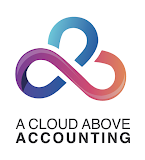Tax season can feel overwhelming for small business owners. Whether you’re a new entrepreneur or an experienced business owner, having a comprehensive small business tax preparation checklist is essential for a smooth filing process. This guide will walk you through everything you need to know about preparing your business taxes, from gathering basic documents to understanding complex deductions.

Why Start Your Tax Preparation Early?
Early tax preparation isn’t just about avoiding last-minute stress. Starting early gives you the opportunity to properly evaluate your financial position and make informed decisions about year-end purchases, retirement contributions, and tax-saving investments. Early preparation allows you to identify potential tax liabilities well in advance, helping you better manage your cash flow and avoid unexpected financial strain.
Working ahead of tax deadlines also gives you the advantage of accessing tax professionals when their schedules are more flexible. This means you’ll have time for thoughtful discussions about tax strategy rather than just basic compliance. Our bookkeeping and tax preparation services can be particularly valuable during this planning phase, helping you identify opportunities for tax savings that might be missed in a last-minute rush.
Essential Documents to Gather
Creating a systematic approach to document collection makes tax preparation more manageable.
Business Formation Documents
Your business’s legal structure and formation documents form the foundation of your tax obligations. Keep these essential documents readily available:
- Business registration papers
- Employer Identification Number (EIN) documentation
- State and local business licenses
- Partnership agreements
- Operating agreements
- Corporate bylaws
- Previous tax returns (last 3 years)
- Any IRS correspondence
Financial Records (Monthly and Annual)
A complete financial picture requires careful tracking of all financial transactions throughout the year. Beyond basic bank statements, you’ll need to maintain detailed records of:
Financial Accounts
- Monthly bank statements
- Credit card statements
- Loan documents
- Investment accounts
- Retirement contributions
Asset Documentation
- Equipment purchase receipts
- Vehicle documents
- Property records
- Insurance policies
Using cloud accounting services helps keep these documents organized and easily accessible.
A Complete Picture
Accurate income reporting requires careful tracking of all revenue sources:
Sales Records
- Point of sale reports
- Sales invoices
- Customer receipts
- Returns and allowances
- Credit card processing statements
- Cash transaction logs
- PayPal or other payment processor reports
Additional Income Sources
- Interest earned
- Dividend payments
- Rental income
- Royalty payments
- Commission income
- Affiliate marketing revenue
- Asset sale proceeds
Government Forms
- 1099-NEC forms received
- 1099-K forms from payment processors
- State sales tax records
- Local tax documentation
- Grant documentation
- Government contract payments
Our small business bookkeeping services guarantee accurate tracking of all income sources.

Comprehensive Expense Tracking
Every legitimate business expense represents a potential tax deduction, making accurate expense tracking crucial for tax optimization. Our bookkeeping catch up services can help you organize and categorize expenses properly if you’ve fallen behind. Track the following:
Office Expenses
- Rent or lease payments
- Utilities (electricity, water, gas)
- Internet and phone services
- Office supplies and equipment
- Furniture purchases
- Cleaning services
- Building maintenance
- Security systems
Professional Services
- Legal fees
- Accounting services
- Consulting fees
- Professional memberships
- License fees
- Banking fees
- Credit card processing fees
- Insurance premiums
Marketing and Sales
- Advertising costs
- Website expenses
- Social media marketing
- Print materials
- Trade show fees
- Client gifts (within IRS limits)
- Promotional items
- Photography/video services
Employee and Contractor Management
Managing worker-related expenses requires careful attention to both tax compliance and proper documentation. Whether you have full-time employees, part-time staff, or contractors, each category has specific tax implications and reporting requirements.
Employee Compensation and Benefits
Payroll expenses require careful monitoring and regular reporting. Beyond basic wages, track all additional compensation including bonuses, commissions, and overtime pay. Benefits packages often represent significant expenses while providing tax advantages for both employer and employee.
Independent Contractor Relationships
Working with independent contractors requires different documentation than employee relationships. Keep records of:
- Service agreements and contracts
- Payment records and 1099 forms
- Project scope documents
- Performance evaluations
- Insurance certificates
- Professional credentials
Our bookkeeping cleanup services for small businesses can help make sure your worker classification and documentation meet all regulatory requirements.
Understanding Business Tax Deductions
Tax deductions can significantly reduce your business’s tax liability, but they require proper documentation and understanding. Many business owners miss potential deductions simply because they don’t recognize qualifying expenses or fail to maintain proper records. Let’s look at the main categories of deductions and how to maximize their benefit to your business.
Vehicle and Transportation
- Business mileage logs
- Fuel costs
- Vehicle maintenance
- Vehicle insurance
- Registration fees
- Parking expenses
- Toll charges
- Public transportation
- Vehicle depreciation
Travel Expenses
Business travel opens up multiple deductible opportunities. When you travel for business purposes, most ordinary and necessary expenses become tax-deductible. This includes airfare, lodging, ground transportation, and even a portion of your meals. However, the key to maximizing these deductions lies in maintaining detailed records and understanding what qualifies as a business expense.
Remember that entertainment expenses are no longer deductible, but business meals remain partially deductible. Document every business meal with:
- Date and location
- Business purpose
- Attendees and their business relationship
- Cost of the meal
- Any business discussions or outcomes
Home Office Deductions
- Square footage calculations
- Mortgage interest portion
- Property tax allocation
- Utilities percentage
- Insurance costs
- Home maintenance
- Internet services
- Office furniture
- Security systems
Technology and Digital Tools
Modern tax preparation relies heavily on digital solutions. Using this small business tax preparation checklist alongside digital tools can help streamline your process.
Essential Software
- QuickBooks or Xero for accounting
- Receipt scanning apps
- Mileage tracking apps
- Time tracking software
- Inventory management systems
- Project management tools
- Document storage solutions
- Tax preparation software
Digital Organization Strategies
Your small business tax preparation checklist should include establishing a clear file naming convention and folder structure for all digital documents. Create separate folders for different tax years and categories of documents. Use cloud storage solutions to make sure your records are both secure and accessible.
Consider implementing these digital best practices:
- Scan paper documents immediately upon receipt
- Use automated expense categorization
- Set up regular backup systems
- Implement version control for important documents
- Create a digital audit trail
- Use secure document sharing methods
Business Structure Tax Considerations
Tax preparation varies based on your business structure:
Sole Proprietorship
As a sole proprietor, your business and personal taxes are inherently linked. This simplifies some aspects of tax filing but can also create additional complexity in separating business and personal expenses. You’ll report business income and expenses on Schedule C of your personal tax return, and you’re responsible for both income tax and self-employment tax on your business profits.
You will need to maintain clear documentation of business use of personal assets, like your vehicle or home office, and understanding self-employment tax obligations. Regular tax planning becomes essential to manage quarterly estimated tax payments and avoid surprise tax bills.
LLC Considerations
Limited Liability Companies offer flexibility in tax treatment, but this flexibility requires careful planning and documentation. Single-member LLCs are usually treated as sole proprietorships for tax purposes, while multi-member LLCs are usually taxed as partnerships. LLCs can elect to be taxed as corporations, however, which might provide tax advantages in certain situations.
Document all member contributions, distributions, and basis calculations carefully. Maintain detailed operating agreement updates and make sure all member distributions are properly recorded. This documentation becomes particularly important if your LLC faces an audit or when members join or leave the business.
Tax Credits vs. Tax Deductions
Understanding the difference between credits and deductions:
Available Tax Credits
- Research and Development
- Work Opportunity
- Small Business Healthcare
- Disabled Access
- Family Leave
- Energy Efficiency
- Employee Retention
- New Markets
- Investment Credits
Deduction Categories
- Business Operations
- Capital Expenses
- Employee Benefits
- Interest Payments
- Professional Services
- Marketing Costs
- Insurance Premiums
- Retirement Contributions
Quarterly Planning for Tax Success
Following a small business tax preparation checklist throughout the year helps break down tax preparation into manageable quarterly tasks.
Q1 (January-March)
- H4: Financial Review
- Close previous year’s books
- Review financial statements
- Reconcile all accounts
- Send 1099 forms
- Process W-2s
- Update payroll data
- File quarterly returns
- Plan Q1 tax payment
- H4: Documentation
- Organize tax documents
- Update business records
- Review expense categories
- Check compliance requirements
- Verify vendor information
- Update employee records
- Review depreciation schedules
- Check vehicle logs
Q2 (April-June):
- H4: Mid-Year Planning
- Review Q1 performance
- Update financial projections
- Check estimated payments
- Review business structure
- Update inventory records
- Plan major purchases
- Review retirement contributions
- Schedule tax planning meeting
Q3 (July-September):
- H4: Strategy Review
- Assess year-to-date performance
- Update tax projections
- Review equipment needs
- Plan year-end purchases
- Check tax law changes
- Review benefit plans
- Update business plans
- Consider tax strategies
Q4 (October-December):
The final quarter requires careful attention to both current year completion and next year planning. Focus on:
- H4: Year-End Tasks:
- Project final income and expenses
- Plan strategic purchases
- Review retirement contributions
- Schedule tax planning meetings
- Update employee information
- H4: Next Year Planning:
- Set financial goals
- Review tax law changes
- Plan first quarter activities
- Update business plans
- Schedule important deadlines
Industry-Specific Tax Considerations
Tax requirements and opportunities differ significantly across different industries. Understanding the specific considerations for your business sector can help maximize deductions and maintain compliance.
Retail Business
Retail businesses face unique tax challenges, particularly in inventory management and sales tax compliance. Accurate inventory tracking is crucial for tax purposes, affecting both your cost of goods sold and your business’s overall profitability. Consider conducting quarterly physical inventories to maintain accuracy in your records. This helps identify discrepancies early and provides documentation to support your tax returns.
Sales tax compliance has become increasingly complex with the growth of online sales. Keep detailed records of:
- Multi-state sales tax obligations
- Point-of-sale transactions
- Online sales platforms
- Marketplace facilitator requirements
- Local tax jurisdictions
Service Industry Tax Planning
Service-based businesses have distinct tax considerations compared to product-based companies. Your primary asset is often your time and expertise, which requires different tracking and documentation methods.
Time tracking becomes crucial for service businesses. Whether you bill by the hour or by project, maintaining detailed time records helps justify your income and supports your pricing strategies. Professional development expenses often play a larger role in service industry deductions.
Track these service-specific elements:
- Client meeting time
- Project development hours
- Training and certification costs
- Professional license fees
- Liability insurance
Record Retention Guidelines
Proper record retention protects your business and supports your tax positions. Different documents require different retention periods, and understanding these requirements helps create an efficient storage system.
Permanent Records
Some business records should be kept indefinitely. These documents form the foundation of your business’s legal and tax history:
Tax Returns and Supporting Documents
Keep all filed tax returns permanently. These provide a historical record of your business’s tax positions and can be valuable for future planning. Supporting documents should include:
- Filed tax forms
- Audit reports
- IRS correspondence
- Tax planning documents
- Business formation records
Legal Documents
Maintain permanent files for:
- Articles of incorporation
- Operating agreements
- Board minutes
- Major contracts
- Property records
- Insurance policies
Time-Limited Records
Many business records have specific retention requirements:
Seven-Year Records
- Bank statements
- Payroll records
- Vendor contracts
- Sales receipts
- Purchase orders
- Travel expenses
- Entertainment receipts
Three-Year Records
- Monthly financial statements
- Credit card statements
- Utility bills
- Routine correspondence
- Marketing materials
Ready to streamline your tax preparation process? Contact us today for a free consultation. Our team at A Cloud Above Accounting will help you organize your finances, maximize deductions, and maintain compliance. Schedule your consultation now and take the stress out of tax season.
FAQs
What happens if I miss a tax deadline?
If you miss a deadline, you may face penalties or interest charges. Contact a tax advisor if you’re unsure about filing requirements.
What’s the most overlooked tax deduction?
Vehicle expenses and home office deductions are commonly missed. Track mileage and maintain clear records of business use of personal assets.
When should I start gathering tax documents?
Start collecting documents year-round, but begin intensive organization at least three months before filing deadlines. Monthly filing and quarterly reviews work best.
Is it necessary to keep paper receipts for taxes?
Digital receipts are acceptable for tax records, as long as they are clear and accessible for verification.
How can I reduce my tax preparation time?
Use accounting software and cloud bookkeeping services to maintain organized records throughout the year. Regular maintenance saves time during tax season.



